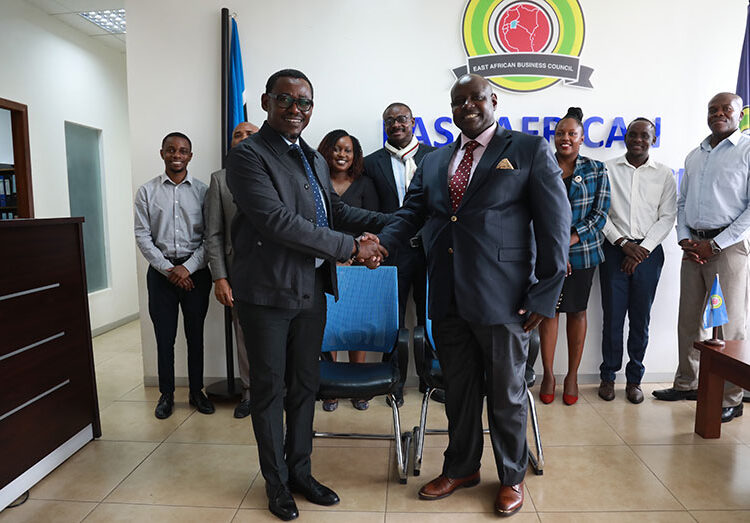The Federation of East African Freight Forwarders Associations (FEAFFA) recently sent a delegation to seek the support of the East African Business Council (EABC) and East African Community (EAC) in lobbying the stakeholders to fast-track the enactment of the self-regulation law for the clearing agents in East Africa among other areas of the collaboration.
FEAFFA and other stakeholders in the East African region developed a Model Bill on self-regulation of the clearing and freight forwarders. The Model Bill also known as Model Customs Agents and Freight Forwarders Management Bill 2017, was developed by the legal experts in the region, through an initiative by the FEAFFA in partnership with the EAC Directorate of Customs, the EAC revenue authorities, and Japan International Co-operation Agency (JICA). However, one of the biggest challenges facing the speed of having the law in place has been financing.
All countries apart from DR Congo and South Sudan have drafted bills ready to be presented to their respective countries, and parliament for consideration. TradeMark Africa (TMA) formerly TradeMark East Africa (TMEA) supported the drafting of the national bills in Uganda, Tanzania, and Burundi while Business Advocacy Fund (BAF) on the other hand supported the drafting of a similar bill in Kenya.

According to FEAFFA Acting Executive Director Mr. Elias Baluku, even though the industry has been championing professionalism through several activities such as training, the code of conduct, and standard trading conditions, CPD programs among others, there is a need to have a legally backed self-regulatory mechanism within the sector to enhance accountability on the part of the Customs Clearing Agents and Freight Forwarders.
“Self-regulation is all about regulation of the professionals involved in customs agents and freight forwarders. As we all know, some challenges can’t be solved with the legal framework in place,” he said.
For a long time, Customs Agents and Freight Forwarders in East Africa have been operating under one recognized law; the East African Customs and Management Act of 2004 (EACMA). EACMA was formulated by the East African Community governments to promote legitimate trade while ensuring that all countries operate within the confines of the laws.

Enacting EACMA was undoubtedly a significant success and a first leap toward ensuring recognition of the freight logistics industry in the region. However, EACMA came with limitations of equal measure.
EACCMA and other existing regulations largely focus on customs but fail to address the key aspect affecting agents such as professionalism and compliance for the benefit of the sector.
Significant differences when it comes to matters of customs and the role of a customs agent and a freight forwarder are not adequately addressed by EACMA. The major issues touching on individual customs agents and freight forwarders are key in professionalizing the sector and whenever new developments in the freight logistics industry arise, the process involved in amending EACMA is tedious and requires more time as compared to an individual country amending its laws to address various issues affecting the industry.
There is therefore a need to develop the self-regulation law to address these shortcomings and recognize customs agency and freight forwarding as a professional practice.
The model law is a game-changer as it will supplement government regulations by filling regulatory gaps, streamline the logistics sector by enhancing accountability, protect importers and exporters, protect consumers of goods and services, and significantly contribute to lowering the cost of doing business in the region. So far, five countries in the EAC have a draft bill that awaits review by parliament.
This article was published by the editorial team at FEAFFA led by Andrew Onionga. For any enquiries, contact us via Email: onionga@feaffa.com; freightlogistics@feaffa.com Tel: +254733780240





